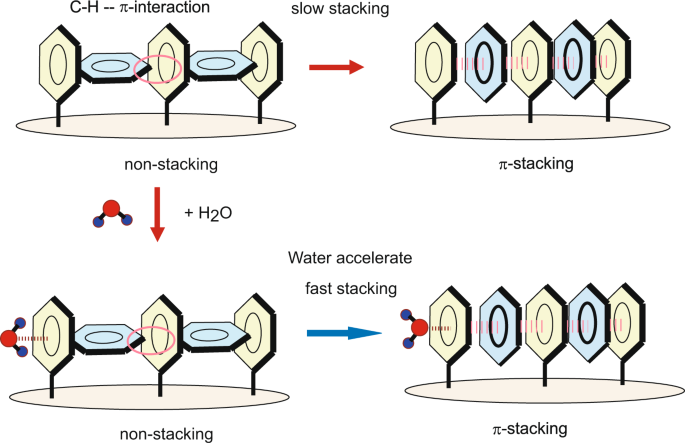Next Bi Future April 12, 2019
Researchers in Japan combined quantum chemical and molecular dynamic calculations to predict how clusters of molecules behave and interact over time providing critical insight for future electronics. They used their method to predict the changes in a computer-simulated cluster of benzene molecules over time. When light is applied to the T-shaped benzene clusters, they reorganize themselves into a single stack; an interaction known as pi-stacking. This modification from one shape to another changes the cluster’s electrical conductivity, making it act like an on-off switch. They simulated the addition of a molecule of water to the cluster and found that pi-stacking happened significantly faster. This pi-stacking is also reversible, which would allow switching back and forth between the on and off modes. The research could lead to the creation of a new field of science called cluster molecular electronics…read more. Open Access TECHNICAL ARTICLE

Schematic illustration of a model of the on-off switching element composed of a benzene cluster and the accelerating effect of H2O on the timescale of π-stacking formation. Credit: Nature Scientific Reports Scientific Reports volume 9, Article number: 2377 (2019)